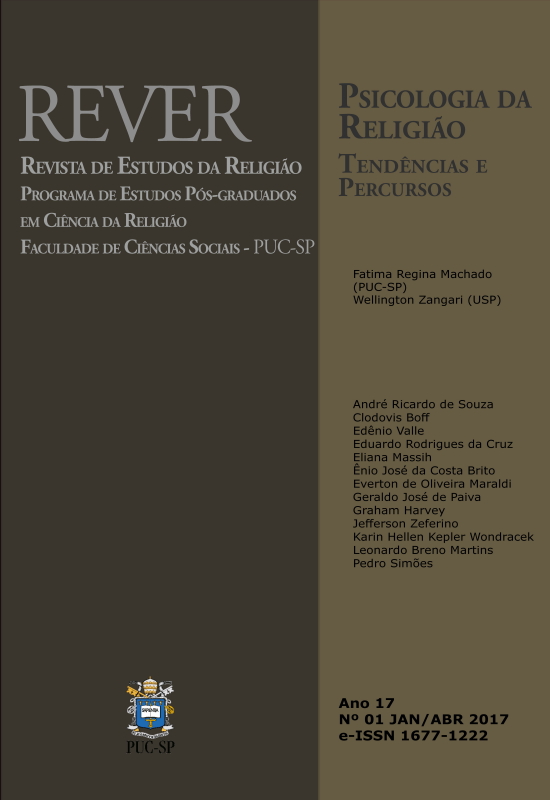Challenges of Spiritist Assistencial Work: Two Patterns of Acting
DOI:
https://doi.org/10.23925/1677-1222.2017vol17i1a7Keywords:
Spiritism, charity, assistential work, religious activity, institutional diversityAbstract
Spiritism is very much identified with charities in Brazil, which, in turn, plays an important role in social legitimation of this religious branch in the Twentieth Century. Sociologically, they constitute the materialization of Christian principal of charity, doctrinally considered in that field as the unique way to salvation. The Spiritist social assistance of major size occurs in mental hospitals and institutions of education for disabled, poor children, and young people. It takes also place in many worship and study centers, mainly, through the distribution of basic food baskets and trousseaux for newborn. This article summarizes the results of two research projects. The first one refers to Spiritist centers of Santa Catarina State, and the second one deals qith five assistential institutions of major size located at the cities of São Paulo, Garulhos, Salvador, Rio de Janeiro and Niteroi.Downloads
Published
2017-05-01
How to Cite
Souza, A. R. de, & Simões, P. (2017). Challenges of Spiritist Assistencial Work: Two Patterns of Acting. REVER: Journal for the Study of Religion, 17(1), 123–145. https://doi.org/10.23925/1677-1222.2017vol17i1a7
Issue
Section
Intercâmbio
License
Authors who publish in this journal agree with the following terms:- Authors retain copyright, but grant the journal the right of first publication, with the work simultaneously licensed under the Creative Commons BY-NC License.
- Authors are authorized to assume additional contracts separately, for non-exclusive distribution of the work published in this journal (e.g., publishing in an institutional repository or as a book chapter), as long as with acknowledgment of authorship and first publication in this journal.


